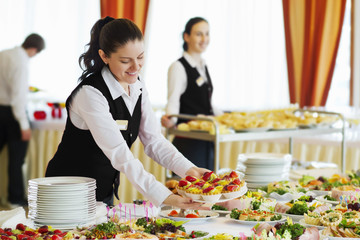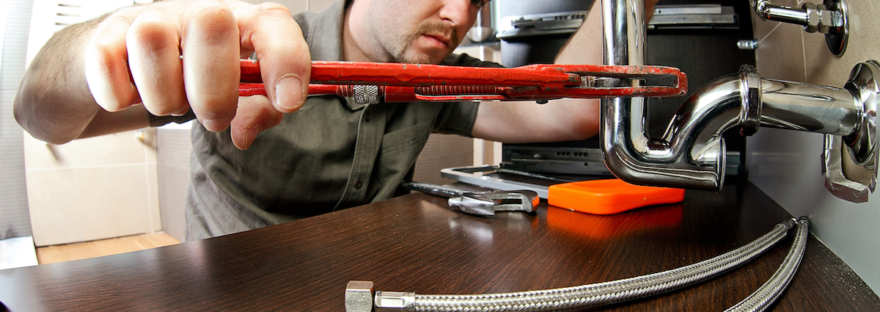Catering businesses often provide food for events, such as weddings and corporate gatherings. Many catering companies also offer their services in the form of food trucks or a delivery service.

When choosing a menu, consider the theme of the event and its attendees. Caterers can often make menu accommodations for special dietary needs. Click Here for more information.
When hiring a caterer, it’s important to find one that understands your vision and can handle the size of your event. Caterers also need to be able to respond quickly and efficiently, and accommodate any special requests you might have. This is why it’s always a good idea to ask for references, and to check out their reviews online.
During your interviews, ask catering companies to give you examples of their work. This will allow you to compare their style with your own and decide if they are a good fit for you. It’s also a great way to see how they work under pressure and in stressful situations. If they can think on their feet and come up with creative solutions under pressure, they’ll be better equipped to deal with unexpected issues at your event.
If you have a specific guest count in mind, let the catering company know before they start their interview process. This will help them narrow down their options and prepare a menu that suits your needs. It’s also a good idea to ask them how they usually handle last-minute changes, as things can often go wrong at the end of an event. A caterer that can think on their feet and adapt quickly will save you a lot of stress and hassle in the long run.
Before making a decision, it’s also a good idea to make sure the catering company has all of the necessary certifications. This includes food health and safety certificates. It’s entirely within your right to ask to see these, and if the catering company cannot provide them, it may be time to move on.
Once you’ve found a caterer that you feel comfortable with, it’s a good idea to schedule a tasting session. This will allow you to try their food and get a sense of their service style. This will be an especially important aspect of your catering experience if you plan on hosting events frequently, as it will give the caterer a chance to become familiar with your tastes and preferences, and will expedite the planning process for future events.
Creating a Menu
Creating an effective menu is a critical component of running a restaurant. It communicates your brand, showcases culinary strengths, and sets customer expectations. It also serves as a marketing tool that can retain regulars and attract new clientele.
A menu is a list of dishes that a restaurant offers for sale, and it may vary from day to day or offer a fixed selection. It may also include items for take-out or delivery. The menu is a vital part of the restaurant’s identity, so it should match the ambiance and theme of the establishment. It also provides a way to highlight specials, seasonal offerings, and limited-time offerings.
The first step in developing a menu is to make a list of all the dishes your restaurant will offer. This can be on a pad of paper, a spreadsheet, or an online menu creation tool. Once you have a full list, begin sorting it into categories. Typical categories include appetizers, entrees, and desserts. If you have multiple styles of one dish, consider placing them in separate categories instead of lumping them together. This will help customers find what they want quickly and will minimize confusion for staff.
Once you have all the dishes listed, it is time to start writing descriptions for each item. This can be done in any way that suits your restaurant, but it is important to keep in mind the types of ingredients you use and how they will be used by customers. It is also a good idea to think about any dietary restrictions or preferences that may exist in your customer base and consider making these a priority in the menu.
Next, it is important to choose a layout for the menu and decide whether or not to include images. Many restaurants opt to skip this step, but for others, it can be an excellent way to draw attention to certain dishes. If you do decide to use images, be sure that they are high-quality and in proportion with the descriptions. Also, be sure to add adequate spacing between menu items to avoid visual clutter and improve readability.
Choosing a Venue
Choosing the right venue is one of the most important decisions to make when organizing an event. It will impact every other aspect of the event, including speaker lineups, catering options, and attendees’ experience. It’s important to consider your goals for the event and choose a venue that will help you reach those goals.
Whether you’re hosting an event at a garage, library, bookstore, field, theatre, or restaurant, the location will affect the overall vibe and feel of the event. Choosing a space that aligns with your brand and creates a unique experience for your guests will help your event stand out from the competition and generate buzz around it.
When selecting a venue, you should consider the capacity and layout of each room. The room size should be comfortable for your audience and ensure that everyone has an opportunity to interact during the event. You should also check the acoustics of the space to avoid distractions or over-crowding. Lastly, you should choose a venue that offers multiple rooms in different capacities and sizes so you can adjust the size of your rooms as registrations come in.
Another thing to keep in mind is the budget for your event. When comparing venues, you should compare the space prices, hire fees, and cost per person for each package. You should also find out what types of food are included in the packages and if the venue has in-house catering or allows you to bring in your own vendors. Having a diverse menu with dietary accommodations can help you attract a wider audience.
If your event will be a large, multi-day affair, you should choose a venue with convenient access to transportation routes. Look for locations near airports, train and bus stations, and major highways. This will make it easier for local and out-of-town guests to attend your event. You should also consider parking availability and ADA compliance. Finally, you should ask the venue about the terms of their contract and any additional services that they offer.
Organizing the Event
Organizing an event is a complex and time-consuming task. Luckily, there are several tips and tricks you can use to make the process easier and less stressful. First, you should clearly define the goals of your event. Do you want to increase brand awareness, raise funds, or generate leads? Defining these goals early on will help you avoid costly last-minute changes.
Once you have your goals defined, start planning out the logistics of your event. This includes the date, venue, catering services, and any speakers or entertainment you may need. You should also contact your vendors early to get the best rates and confirm availability. This will allow you to negotiate with them and stay within your budget.
Next, set up a project management system to keep track of the many tasks and committees involved in the event. A tool like Trello can be helpful to manage this, as it allows you to assign and track work from different teams. It can also help you visualize the progress of your team and see if they are on target to meet their deadlines.
Finally, you should create a timeline to help you stay on track. This should include the deadlines for booking, marketing, and other important events. It should also include a contingency plan for any unexpected expenses. This will ensure that you are prepared for any unforeseen challenges and will have enough money to cover the cost of any extras that might arise.
Before the event, organize a meeting to go over the details with your team. This will help everyone be on the same page and ensure that no one is missing any essential information. A few weeks before the event, you should also do a test run of the entire event process. This will highlight any problems and give you a chance to fix them before the big day.
Finally, after the event, remember to follow up with attendees and vendors. This will show that you care about your attendees and will help build a good relationship with them. Also, make sure to thank them for their participation and support either in person or by sending a thank you note.



